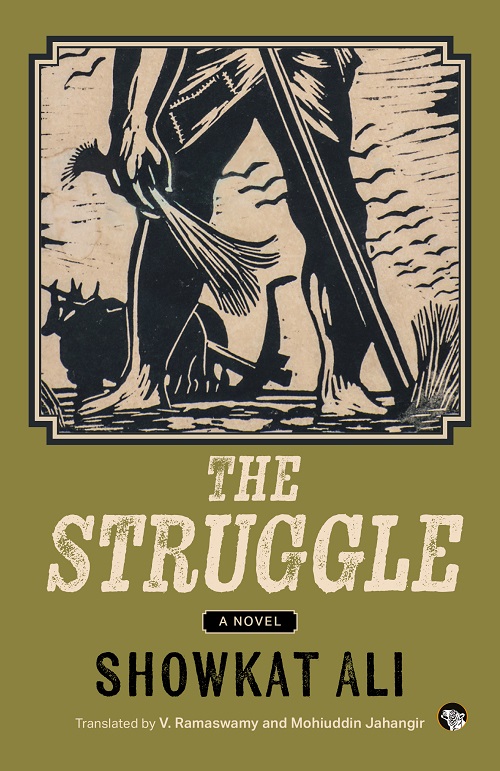Set in a remote village in the Dinajpur region of undivided Bengal during the mid-1940s, The Struggle tells the intertwined story of Phulmoti—a young widow fighting to hold on to her land, her dignity and her child—and Qutubali, a simple-minded outsider whose unexpected kindness and fierce loyalty make him her unlikely ally amid the upheavals of a precarious feudal order and the stirrings of a nation on the verge of independence.
The death of Phulmoti’s husband shatters her fragile world. Her ten-year-old, Abed, can offer little defence against the men now circling her—neighbours, relatives, even the local cleric—drawn by desire and the lure of her small property. Malek, a kindly bookseller at the local market, too, proves not to be what he seems. It is Malek’s hired hand, Qutubali, who finds himself drawn into her struggles, standing by her in ways that others do not. The politics of the Congress and the Muslim League hover on the margins of village life, far removed from their daily battles. But when the tebhaga struggle breaks out in Bengal—with sharecroppers demanding two-thirds of the harvest from landlords as their rightful due—Phulmoti and Qutubali stand to lose what little of their lives they have pieced back together.
First published in 1989 as Narai, this novel is not only a vivid portrayal of endurance in the face of isolation and rural exploitation, but also a sharp indictment of the social and political systems that deny justice to the poor. This sensitive translation introduces to a wider audience a forgotten classic of Bengali literature—politically clear-eyed and deeply moving.

